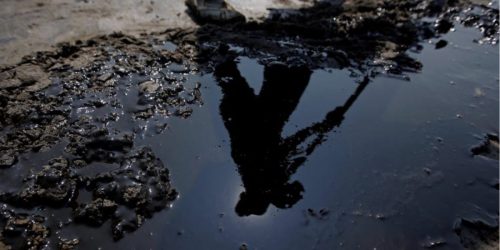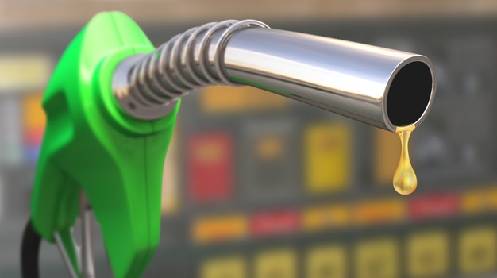JAKARTA – With Chevron and perhaps ExxonMobil heading for the exits, active exploration at a virtual standstill and production on an increasingly downward spiral, Indonesia’s government needs to conduct radical regulatory surgery before its oil and gas industry is doomed by the onrushing era of renewable energy.
Analysts say the nationalist tide that has swept over the industry in the past six years has left Indonesia on the bottom rung of prospective foreign investment and without the financial and technical means to explore for and develop new fields independently.
“The government needs to consider a major paradigm shift to spur investment if the country is to realize its geological potential before it becomes too late and its many remaining resources are left in the ground forever,” says one American oil expert with long experience in Indonesia.
That’s also because major oil companies, many with a previously long history in Indonesia, including BP, Royal Dutch Shell and Total, are signaling a shift to renewables as they start to scale back investment in traditional oil and gas projects.
“Globally, renewables are moving very fast, technology-wise, infrastructure-wise and cost-wise,” a former senior Indonesian energy official told Asia Times. “Renewables are now in head-on confrontation with oil and gas. As always, we (Indonesia) are behind the eight-ball.”
With most low-risk resources in Indonesia already being exploited, oil and gas output will continue to decline as state-owned Pertamina struggles to come up with the increased investment required to fund enhanced recovery technology in mature fields.
Exploration has fallen by an average of 23% over the past decade. According to government data, the number of exploratory wells plunged from 64 in 2014 to 26 in 2019 and only 18 last year, partly because of the impact of the Covid-19 pandemic and partly as a result of sagging global oil and gas prices.
Chevron is walking away after its failure to renew the contract to Sumatra’s long-producing Rokan oil block led to it relinquishing its 62% stake in the US$9 billion Indonesian Deepwater Development (IDD) project in Kalimantan’s Kutai Basin.
Italian oil company ENI, which operates one of the four fields to be merged under the IDD venture, is expected to replace Chevron, although officials said last week they were still in negotiations with ENI over commercial aspects of the five-year development.
ExxonMobil is also reportedly close to relinquishing its Cepu, East Java, oil block as it seeks to ditch projects with the lowest profit margins to focus on Papua New Guinea and the Gorgan liquified natural gas (LNG) project on Australia’s Northwest Shelf.
The oil giant is laying off 14,000 employees, or about 15% of its global work force, after the impact of the pandemic saw it lose its position as America’s top energy company to NextEra Energy Inc, which specializes in solar and wind power.
Cepu, an onshore block that went onstream in East Java in 2008, produced an average of 215,000 barrels of oil a day last year, edging ahead of Rokan’s 176,000 barrels, Indonesia’s largest producing field for more than five decades.
State oil company Pertamina estimates that Rokan’s Duri, Minas and Bekasap fields will need $70 billion in investment over the next 20 years to maintain production at acceptable levels and save an annual $4 billion in oil and product imports.
Since the 1980s, Chevron has employed the technologically challenging and capital intensive technique of steam-driven enhanced oil recovery (EOR), which has allowed it to achieve a 60% recovery rate to extend the life of the fast-maturing block.
But given the complexity of the operation, there are fears Rokan will follow the same pattern as East Kalimantan’s Mahakam gas block, where production has fallen away since Total was compelled to hand over control to Pertamina in early 2018.
Upstream regulator SSKMigas revealed last week that output fell by 20% in 2020 — from 605.5 million to 485 million standard cubic feet a day (MMSCFD) – because the number of wells drilled fell short of the target. It predicted a similar decline this year.
ExxonMobil’s departure would leave ENI, BP and ConocoPhillips as the only active petroleum majors in Indonesia. BP is adding a third production train to its Tanggu LNG complex in western Papua; delayed by Covid infections, it is now expected to be completed by early 2022.
Sources familiar with the project say promising results from exploratory drilling at BP’s new offshore Ubadari field, 70 kilometers southeast of Tanggu, will extend the facility’s life well beyond 2035 when the company’s current contract expires.
Japan’s Inpex will be hard-pressed to find a partner with the deep pockets and technical expertise to replace Royal Dutch Shell, which after a year of speculation has announced it is pulling out of the $19 billion Marsela gas venture in the remote Arafura Sea.
Inpex turned down an overture from the China National Overseas Oil Corp (CNOOC) for political, technical and what one source describes as “bad business chemistry issues,” leaving the company to contemplate at least a decade-long delay in developing Marsela’s Abadi field.






